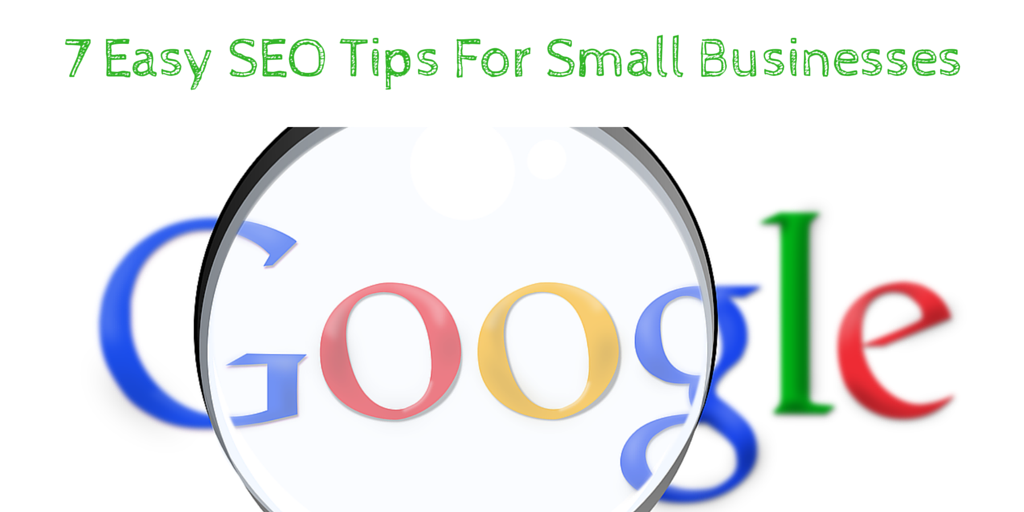7 Easy SEO Tips For Small Businesses
Running a small business and being your own boss isn’t for the faint hearted! Along with a huge amount of responsibility comes a wide range of job titles that all have your name on!
In order to be successful, small businesses need to have a good solid marketing plan in place – it may sound straight forward but many small businesses struggle with this due to a lack of budget and knowledge in this area.
If SEO is completely new and you’ve never used it before it can seem daunting and frustrating when despite you thinking you’ve done everything correctly you aren’t seeing those all important results.
A strong SEO strategy will help put your business on the map and be found on the major search engines such as Google and Yahoo so it’s important that it’s done correctly.
By the end of this blog post we’ll share 7 easy seo tips for small businesses that can be used to help increase website ranking and visibility.
One of the biggest misconceptions when it comes to SEO is to expect results over night, this doesn’t happen.
It takes time for website ranking to increase, SEO isn’t a quick fix, it’s a strategy that over time will help business visibility.
Here’s our 7 easy seo tips for small businesses
1. Content is king
It’s now a well known fact that high quality and engaging content go hand in hand. For some creating good content comes easily others struggle and get a case of writers block here’s some points that are worth remembering.
– make content relevant to your business
– give content a purpose – does it inform, educate or inspire?
– make content easy to read
Good quality content matters and those crawlers are getting better at being able to tell which kind of content is readable and what isn’t. From a readers point of few – content that is useful is much more likely to be shared across social media – this in itself will give you a advantage when it comes to SEO.
One more thing to consider is to ensure that website content is fresh and is published on a regular basis, this will encourage people to return and keep them interested – of course it won’t just be potential customers who will return but the bots will too!
2. Keyword research
Keyword research isn’t so hard to master when using the right tools. Google has it’s own keyword research tool – AdWords and although sign up is required with their ad words to gain access it, it can be used effectively to find out just how popular chosen keywords actually are.
The idea is to find keywords that have a good amount of monthly searches without too much competition. The more competition the harder it is to rank highly enough for those keywords.
3. Don’t over do Keyword Density
Rewind back to when the very basics of SEO were being discovered it was normal practice for people to stuff as many keywords as possible into their content and pages – making the text look un-natural and false.
Obviously it’s now known that keyword stuffing is a big no no, of course some still choose to do this but the chances are that it will have a negative effect on website rankings and if Google is really annoyed with it, websites can actually get penalized by them for participating in black hat seo.
Keeping content and keyword density natural means that search engines are more likely to pick up on the content for the right reasons.
4. Find the right places for keywords
Following on from tip no.3 and knowing not to go overboard with the keywords it’s important to realise that keywords need to be placed prominently so add keywords to the titles of pages, the headers and the body of posts.
Be sure to include those keywords as close to the first and last sentences as possible without making it look un-natural.
5. Include keywords in the URL
When it comes to pages and blog posts on a website make sure that keywords are included in the URL of the page that is being optimized. Google uses this URL text to help determine how relevant content is to the topic in question.
6. Don’t forget about local searches
If you’re a local business it’s worth investing some time into the local seo search. Target keywords that are specific to your area and over time you may be able to rank higher than your competitors. Don’t forget to use keyword research to find out the most popular search results.
While local SEO can be quite competitive there may be some areas where similar companies are not taking advantage of local search results – find this and you’ll have a good advantage over them because your website will rank higher and when potential customers use Google or other search engines they’ll come across your listing first.
7. Use Social Media Effectively
Social media is important for SEO rankings and having a post go viral on Facebook can make a huge different to rankings not to mention all the free traffic that will be generated when the link is clicked!
Be sure to share any new content right across social media platforms such as Facebook, Twitter, Instagram and Google Plus. The majority of customers do expect businesses to be active on social media so if you aren’t already on there it’s time to do something about it.
There’s 7 easy SEO tips for small businesses. SEO is an ongoing process and requires regular action to ensure the best results. To discuss your marketing strategy you can contact us via email at [email protected] or by calling us in our Liverpool office 0151 268 0214

